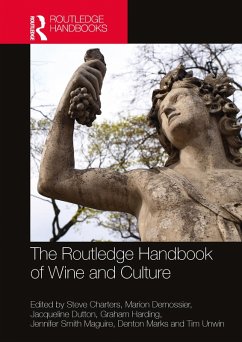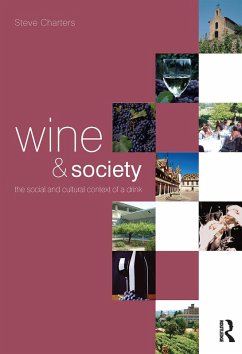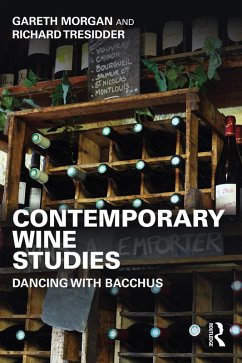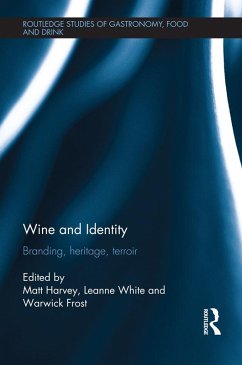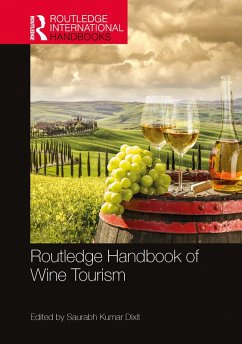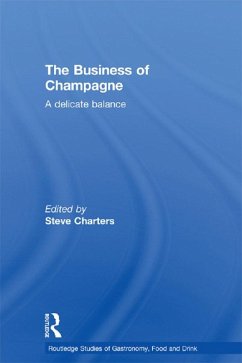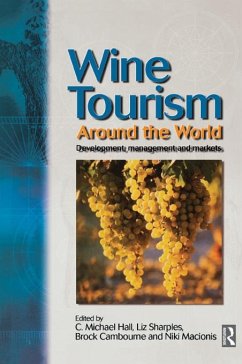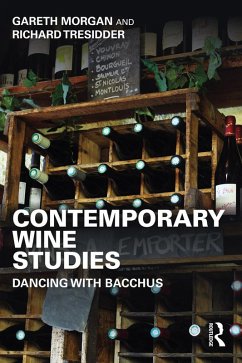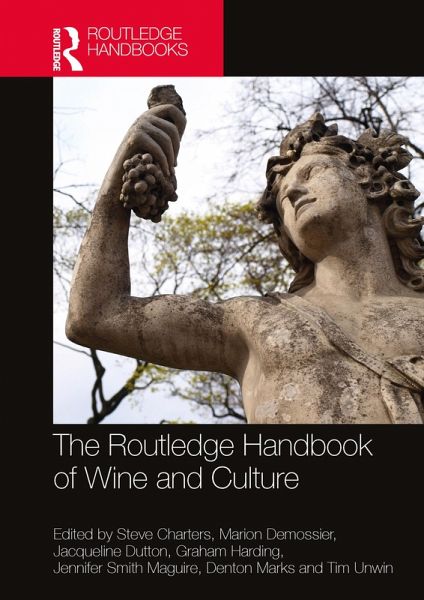
The Routledge Handbook of Wine and Culture (eBook, PDF)
Versandkostenfrei!
Sofort per Download lieferbar
44,95 €
inkl. MwSt.
Weitere Ausgaben:

PAYBACK Punkte
22 °P sammeln!
This title was a prize winner at the OIV (International Organisation of Vine and Wine) Awards 2023.The link between culture and wine reaches back into the earliest history of humanity. The Routledge Handbook of Wine and Culture brings together a newly comprehensive, interdisciplinary overview of contemporary research and thinking on how wine fits into the cultural frameworks of production, intermediation and consumption.Bringing together many leading researchers engaged in studying these phenomena, it explores the different ways in which wine is constructed as a social artefact and how its rep...
This title was a prize winner at the OIV (International Organisation of Vine and Wine) Awards 2023.
The link between culture and wine reaches back into the earliest history of humanity. The Routledge Handbook of Wine and Culture brings together a newly comprehensive, interdisciplinary overview of contemporary research and thinking on how wine fits into the cultural frameworks of production, intermediation and consumption.
Bringing together many leading researchers engaged in studying these phenomena, it explores the different ways in which wine is constructed as a social artefact and how its representation and use acquire symbolic meaning. Wine can be analysed in different ways by varying disciplines involved in exploring wine and culture (anthropology, economics and business, geography, history and sociology, and as text). The Handbook uses these as lenses to consider how producers, intermediaries and consumers use and create cultural significance. Specifically, the work addresses the following: how wine relates to place, belief systems and accompanying rituals; how it may be used as a marker of the identity and mechanisms of civilising processes (often in conjunction with food and the arts); how its framing intersects with science and nature; the ideologies and power relations which arise around all these activities; and the relation of this to wine markets and public institutions.
This is essential reading for researchers and students in education for the wine industry and in the humanities and social sciences engaged in understanding patterns of human ingenuity and interaction, such as sociology, anthropology, economics, health, geography, business, tourism, cultural studies, food studies and history.
The link between culture and wine reaches back into the earliest history of humanity. The Routledge Handbook of Wine and Culture brings together a newly comprehensive, interdisciplinary overview of contemporary research and thinking on how wine fits into the cultural frameworks of production, intermediation and consumption.
Bringing together many leading researchers engaged in studying these phenomena, it explores the different ways in which wine is constructed as a social artefact and how its representation and use acquire symbolic meaning. Wine can be analysed in different ways by varying disciplines involved in exploring wine and culture (anthropology, economics and business, geography, history and sociology, and as text). The Handbook uses these as lenses to consider how producers, intermediaries and consumers use and create cultural significance. Specifically, the work addresses the following: how wine relates to place, belief systems and accompanying rituals; how it may be used as a marker of the identity and mechanisms of civilising processes (often in conjunction with food and the arts); how its framing intersects with science and nature; the ideologies and power relations which arise around all these activities; and the relation of this to wine markets and public institutions.
This is essential reading for researchers and students in education for the wine industry and in the humanities and social sciences engaged in understanding patterns of human ingenuity and interaction, such as sociology, anthropology, economics, health, geography, business, tourism, cultural studies, food studies and history.
Dieser Download kann aus rechtlichen Gründen nur mit Rechnungsadresse in A, B, BG, CY, CZ, D, DK, EW, E, FIN, F, GR, HR, H, IRL, I, LT, L, LR, M, NL, PL, P, R, S, SLO, SK ausgeliefert werden.




